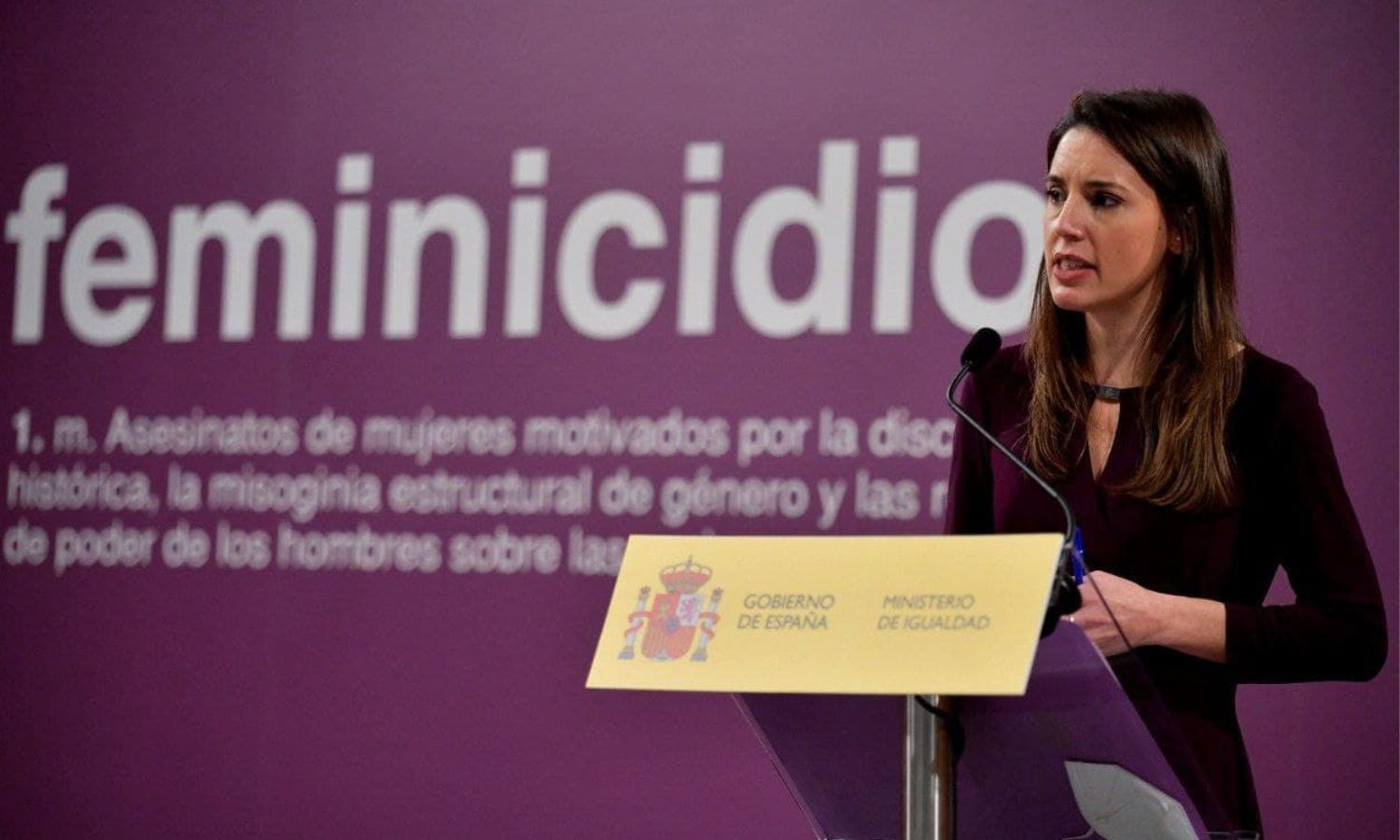How Spain’s «Only Yes Means Yes» Law Has Freed Sexual Assault Convicts From Prison
Spain's groundbreaking «only yes means yes» law on consent was supposed to crack down on sexual abusers. But early signs say the real-life effect may be just the opposite. Critical voices of its effects keep appearing.
Article

Article
In May 2022, Spanish lawmakers introduced what was touted as a revolutionary feminist bill aimed at toughening legislation around sexual abuse. The law was conceived by the Ministry of Equality following the trial in an infamous 2016 gang rape case of an 18-year-old during the running-of-the-bulls in Pamplona. A video had shown the victim was silent and passive, which was interpreted by judges as proof of her consent.
In May 2022, Spanish lawmakers introduced what was touted as a revolutionary feminist bill aimed at toughening legislation around sexual abuse
Dubbed the «Only Yes Means Yes» law, the new legislation aims to ensure that a case like this would never come to be again. Now, a sexual act where no explicit consent is given (even without violence or threat) would be classified as rape. Spain would be joining 12 other European countries who have changed their legal definition of rape as sex without clear consent.
It was a watershed in criminal justice and society at large, aiming to completely redefine acts of sexual abuse and give ultimate power to the victim to acknowledge her trauma and pursue legal action .
But the new law came with a caveat: some of those already convicted of sexual assault and abuse would see an automatic reduction in their prison sentences because the new law created a wider range for sentencing. And indeed, more than a year since the new law took effect, studies indicate that a troubling number of rapists and other sexual offenders have been released from jail.
UN critique
Irene Montero, the politician and psychologist who serves as the Spanish Minister of Equality, is now facing growing criticism for the ‘only yes means yes’ law she introduced. While the minister first denied that prison sentences were being reduced at all, she later changed her statement as evidence began to stream in. Even then, she explained that any such revisions of prison sentences were occurring unlawfully at the hands of right-wing judges — and were, in any case, not widespread small quantities.
This did not convince Reem Alsalem, special rapporteur of the United Nations on violence against women, its causes and consequences. She expressed her concern last week over the fact that the ‘only yes means yes’ law had indeed backfired for the victims that it was trying to protect. Alsalem recognized the positive aspects of the sexual consent law, such as the recognition of victims’ rights and facilitation of their access to resources, but stated that these were eclipsed by the damage done with the growing reductions in prison sentences.
«While it cannot be undone», she said, «it is now crucial for the Spanish government and its institutions to monitor the real impact of the early release of abusers on the life of their victims, try to minimize re-victimization and ensure their protection».
The Spanish Supreme Court has also begun this week to review around 30 appeals regarding sentence reductions following the application of that same law, in order to establish legal precedent regarding the reductions.
Sexist propaganda
Indeed, many are now recalling the assurances made by Montero shortly after the approval of the ‘only yes means yes’ law that there would be no sentence reduction.
She emphatically tried to assure us: «Since we live in a context where it is more important to sensationalize headlines that instill sexual terror, to re-criminalize the feminist struggle, to question feminist advances and to instill doubt within women, then what happens, happens», Montero said. «There are indeed many scandalous headlines, but not a single sentence reduction has been observed, nor will it be. It’s sexist propaganda».
In case the minister’s position was not clear enough, Secretary of State Ángela Rodríguez Pam and the delegate against Gender Violence, Victoria Russell, stated that the solution was not punitive measures. In other words, they wanted to please everyone. On one hand they said that prison sentences would not be reduced, and on the other hand they argued that the solution was not imprisonment.
A new truth
But there have indeed been many sentence reductions, and there will be many more. In terms of percentages, the Supreme Court has agreed to reducing 40.5% of reviewed case’s sentences; the National Court to 14.3% of cases, provincial courts to 31.6% of cases and higher courts to 39.5%.
In terms of percentages, the Supreme Court has agreed to reducing 40.5% of reviewed case’s sentences
In total, there has been a sentence reduction in 32% of the reviewed procedures. That means that as of May 1, there have been 1,079 sentence reductions for rapists and abusers and 188 have been released from prison.
Finally, the higher court has rejected the application of the transitional provision of 1995, which was advocated by the Prosecutor’s Office. This provision is included in all judicial reforms to prevent sentence reductions. The crucial detail is that the Minister of Equality forgot to include this provision in her law, thus facilitating the retroactive application of benefits.
This is why the Second Chamber of the Supreme Court has endorsed the sentence reductions for sexual offenders with the application of the ‘only yes means yes’ law.
Moving forward
Now we know that the minister would have avoided many sentence reductions in sexual abuse cases if only she had included the provision that would have made these impossible when writing her law, an addition which was suggested to her and which she decided not to act upon.
How many of those rapists and abusers who now walk freely will attempt violence against other women?
We also know that the victims, having already faced the personal offense of these sentence reductions, are organizing themselves to demand compensation from the government.
What we don’t know, and I fear we will never really know, is how many of those rapists and abusers who now walk freely through the streets will attempt violence against other women who they would have never reached had they stayed in prison.
What is clear is the confusion that the Minister of Equality is embroiled in, which is what ultimately reaches ordinary citizens. First, they said that there would be no sentence reductions; then, that the reductions occurred due to right-wing judges; then, someone from the ministry said that imprisonment was not the solution, while others insist on maintaining prison sentences.
Now we have to wait to see their response to the reprimand from the UN. But ultimately, while everyone is busy blaming one another, nothing is getting resolved and nobody is taking responsibility for the failure of a law that they implemented.
This content is part of a collaboration agreement of ‘WorldCrunch’, with the magazine ‘Ethic’. Read the original at this link.






